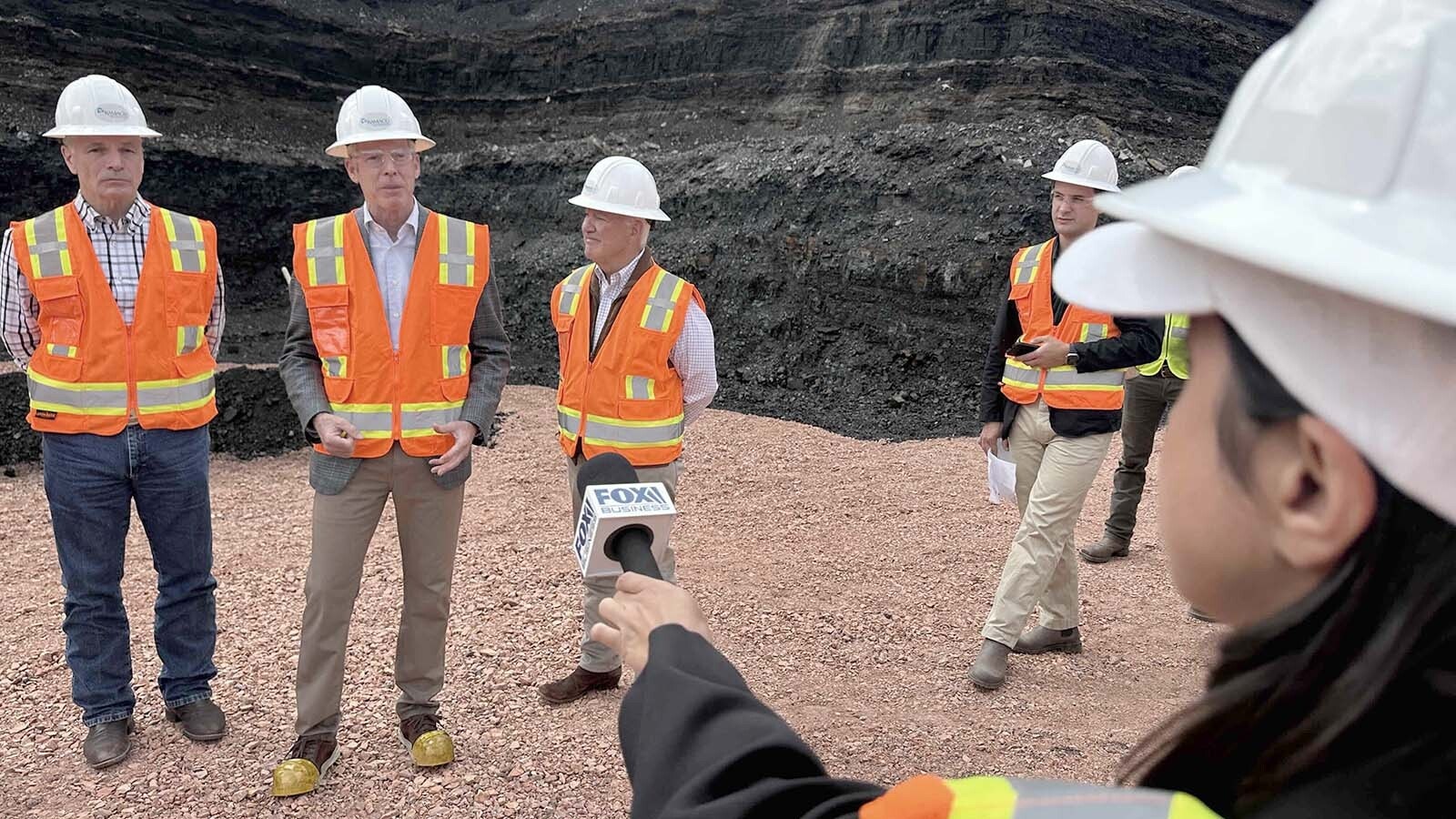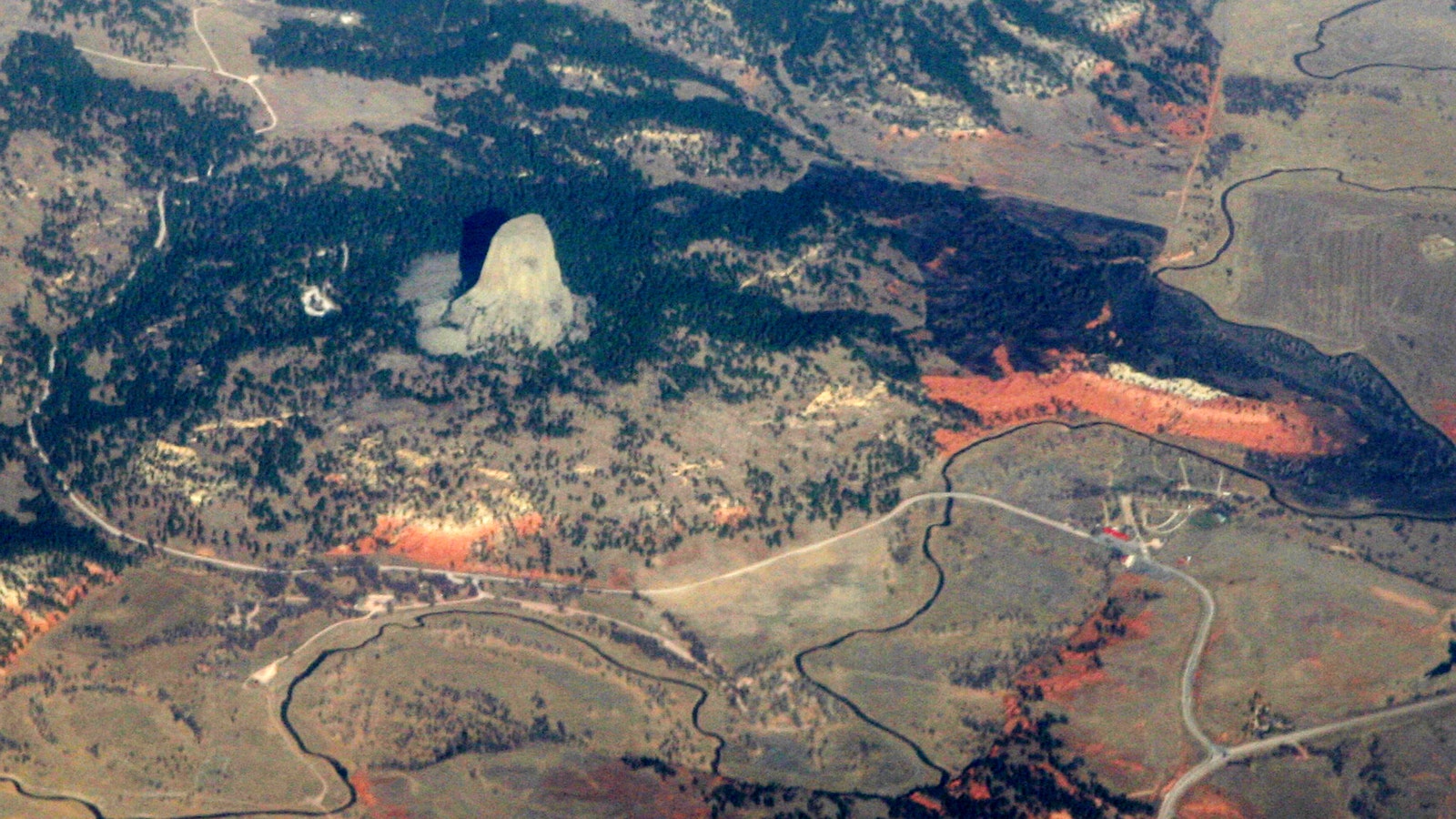In 2019, Wyoming celebrated the 150th anniversary of women’s suffrage, welcomed back members of the Black 14 and bemoaned the worsening coal crisis.
Cowboy State Daily was there to cover it all.
Here’s some of our top stories from throughout the year.
Coal
Mineral extraction in Wyoming could enter a slump in the next four years, and the coal industry is slated to experience the worst of it, according to a report produced by Gov. Mark Gordon’s Power Wyoming initiative.
Some of the initiative’s scenarios predicted a recovery period in two years, but most, and the most likely, predicted a devastating decrease in both Wyoming’s total employment and population.
For the residents of coal country, those predictions could be life changing.
“The coal jobs have historically been the stable jobs,” said Alison Gee, a Gillette attorney. “Now, we’re shifting to an environment where we have to look to oil and gas to try and provide some of the stability for our families. And as you know, the oil and gas markets just aren’t that way. They’re very volatile because of the world economy.”
Although several hundred miners returned to work at the Eagle Butte and Belle Ayr coal mines after Eagle Specialty Materials assumed ownership from the bankrupt former owners, Blackjewel, the reverberations of 600 coal miners being laid off in one fell swoop earlier this year are still being felt statewide.
Corporate income tax
Despite dying in the Senate during the 2019 Legislative Session, a legislative committee is once again studying a proposal to impose an income tax on so-called “big box” stores.
The Legislature’s Joint Revenue Committee listened to testimony in September regarding a 7 percent corporate income tax on companies with more than 100 shareholders.
A similar proposal, House Bill No. 220, referred to as the National Retail Fairness Act, was not considered by the Senate Corporations, Elections and Political Subdivisions Committee before a deadline in February.
Both measures were raised as state officials were faced with rapid declines in the state’s mineral tax revenues, historically the biggest contributors to Wyoming coffers.
Irrigation collapse
After an irrigation canal collapsed, leaving more than 100,000 acres of farmland in Goshen County and Nebraska without water for months this summer, officials are looking into ways to prevent similar incidents in the future.
Built by the Bureau of Reclamation more than 100 years ago, the Gering/Fort Laramie Irrigation Canal collapsed in July, causing the governors of Wyoming and Nebraska to declare states of emergency.
Although the U.S. Department of Agriculture later said crop losses would be covered by insurance, a previous economic analysis report produced jointly by the Nebraska Extension and University of Wyoming Extension originally estimated the collapse could cost both states about $90 million combined.
Opening the books
After a years-long legal battle between Wyoming officials and non-profit organizations over state government transparency, Wyoming State Auditor, Kristi Racines released Wyoming’s checkbook shortly after taking office in January.
The data dump contained approximately 4.9 million line items of expenditures made by state agencies during the last six years, but it does not include several spending categories such as state employee salaries or victims’ benefit payments.
Racines took transparency a step further and launched a website dedicated to providing the public with basic spending data for the state.
Using the data provided through both the checkbook and website, Cowboy State Daily covered a series of state spending stories including the Wyoming Office of Tourism’s sponsorship of rodeo teams, the Wyoming Department of Correction’s purchases of religious items and a look at Wyoming’s own air fleet.
Big Boy
The largest steam engine ever built, the Big Boy locomotive, crossed Wyoming for the first time in 60 years, bound for Utah and the 150th anniversary of the completion of the country’s first transcontinental railway.
“A steam locomotive is a living, breathing piece of machinery,” said Bob Krieger, a former steam locomotive engineer who now runs the UP Historical Society in Cheyenne. “You can see its muscles. You can hear it breathe as it pulls a grade. All steam engines do that. The Big Boy is just the biggest.”
Train enthusiasts from all over the world flocked to Wyoming to witness the historic trip.
Capitol renovations
State agencies started moving back into the Wyoming Capitol building this summer as a $300 million renovation project neared its end.
The refurbishment of the 129-year-old Capitol was the centerpiece for the Wyoming Capitol Square Project that also involved updating the Herschler Building to the north and the space between them.
The reopening ceremony coincided with the celebration of Wyoming’s Statehood Day, and the unveiling revealed a Capitol building considered to be much more accessible to the public, with larger rooms, broader passageways and more open space.
“They’ve done a lot of stuff here that opened up the Capitol,” said Joe McCord, the former facilities manager for the Capitol. “The stairs going into the House and Senate are wide open right now. Downstairs, you’ve got the galley that’s wide open. The rooms are bigger. I just love it, what they’ve done. They’ve done a great job.”
Despite being mostly complete, many agencies were still working with temporary furniture towards the end of the year as the state worked out the details of new furniture request for proposal.
Taco John’s
There was a whole lotta Mexican goin’ on at Taco John’s 50th anniversary this year, some of which the company is taking to Minnesota.
While founded in Cheyenne half a century ago, the fast food chain announced in December it was expanding its corporate office to Minneapolis, where there are more than 200 Taco John’s locations within a few hours drive from the city. But for those readers who can’t get enough oles, the franchise is slated to remain headquartered in Wyoming.
Women’s Suffrage
State legislators kicked off the 2019 Legislative Session by passing a measure setting aside a day to recognize Wyoming as the first state in the nation to give women the right to vote.
The measure declared Dec. 10 as “Wyoming Women’s Suffrage Day,” which marks the day in 1869 when Territorial Gov. John Campbell signed the bill giving women the right to vote in Wyoming.
Marking the occasion with music, the Wyoming Symphony Orchestra commissioned an original work from American composer Stephanie Ann Boyd.
“Wyoming, of course, put through women’s suffrage about 50 years before everybody else, and so we’re taking the inspiration of that, and the stories of the women that were instrumental in that, and writing a piece about them, but also writing essentially a 25-minute minute love letter to Wyoming,” Boyd said.
On Dec. 10, women and men marched to the Capitol commemorating the newly declared holiday and highlighting instances of inequality that still need to be addressed.
Black 14
Fifty years after the University of Wyoming expelled 14 members of its football team, known as the Black 14, for wearing black armbands onto the field, race relations are still strained in the Equality State, said Mel Hamilton, one of the Black 14.
“It’s a shame to say, but it’s pretty much the same as when I entered Wyoming in 1965,” Hamilton said, adding, “with one exception — it went underground.”
Adding diversity to the history books and teaching students how minorities contributed to growth of the U.S. as well as informing them how racism was cultivated by ignorance would be a strong step toward improving Wyoming’s future race relations, Hamilton said.
“They must be allowed to learn what other races have given this country,” he said. “They are ready to lead the way if we — the old vanguard — just get out of the way and let them do it.”
Chronic Wasting Disease
The Wyoming Game and Fish Department released a draft plan to address a fatal disease running rampant through the state’s wildlife population.
“(Chronic Wasting Disease) has been documented spreading throughout the state, and there are areas where its prevalence is high enough that we think it could be having significant impacts on some of our herds,” said Justin Binfet, one of the plan’s authors and a Game and Fish Department wildlife management coordinator. “The plan is based on recommendations that were developed through an extensive collaborative process.”
Dubbed a “suite of strategies,” the plan suggests managing the disease by installing wildlife feeding bans, potentially targeting mule deer bucks during breeding season, voluntary and mandatory submission of harvested animal samples and working with landowners, cities and counties to eliminate areas with unintentionally high concentrations members of the deer family.





